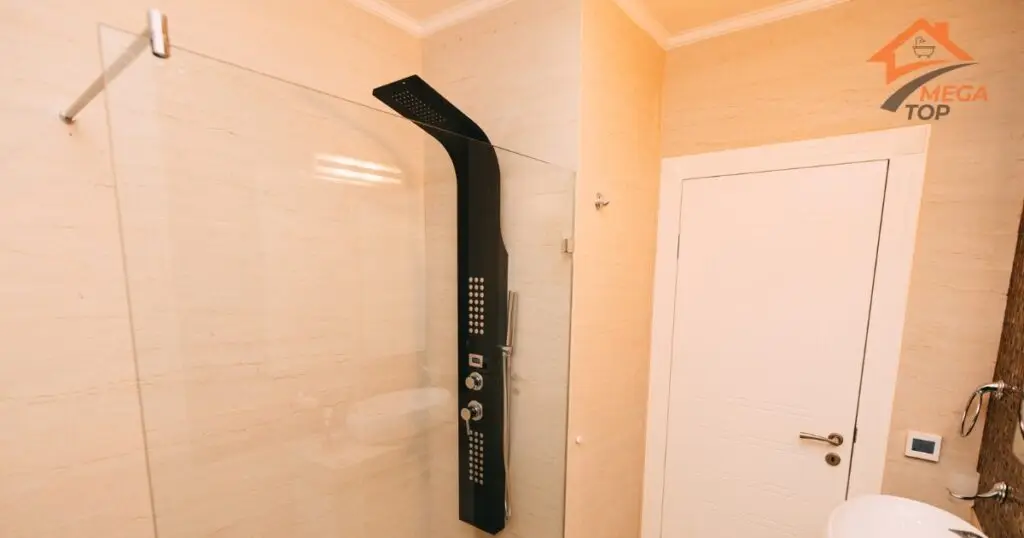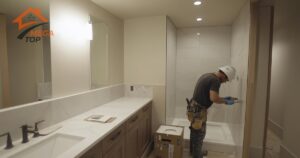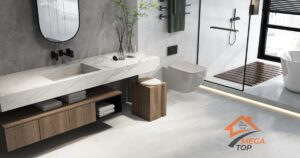What Makes a Shower Door Easy to Install?
Choosing the right type of shower door can simplify the installation process and save time. Factors like the type of hardware, door design, and your skill level play a critical role in determining how easy the installation will be.
Key Factors in Shower Door Installation
- Hardware Requirements: Fewer parts mean simpler installation.
- Door Type: Frameless, sliding, or hinged doors vary in complexity.
- Skill Level: Some doors are more DIY-friendly than others.
Tools and Skills Required for Installation
Basic tools like a drill, level, and silicone sealant are essential. Moderate DIY skills, such as measuring and sealing, are also required for a smooth installation.
Types of Shower Doors and Their Installation Complexity
Each type of shower door has unique installation requirements, making some more DIY-friendly than others.
Sliding Shower Doors
Sliding doors require a track system, which can be more time-consuming to align and install. However, they are a great choice for smaller bathrooms.
Pivot and Hinged Shower Doors
Hinged and pivot doors need secure anchoring to the walls or frame, making them slightly more complex than sliding doors.
Frameless Shower Doors
Frameless shower doors are among the easiest to install due to their minimalist design and reduced hardware requirements.
Why Frameless Shower Doors Are Easier to Install
Frameless shower doors combine simplicity and style, making them a top choice for homeowners seeking an easy installation process.
Minimal Hardware for Simplified Installation
Unlike framed doors, frameless designs don’t rely on bulky frames or tracks, which reduces the number of components you need to manage.
Pre-Fabricated Glass Panels for a Custom Fit
Many frameless shower doors come as pre-fabricated panels, which are ready to mount with minimal adjustments.
Compatibility with Modern Bathroom Styles
Their sleek, universal design fits seamlessly into various bathroom layouts, reducing customization efforts during installation.
Cost and Time Considerations for Frameless Shower Doors
Understanding the costs and time involved helps ensure a smooth project.
Material and Labor Costs
- Glass Panels: Typically range from $300 to $1,000 depending on size and quality.
- Hardware: Minimal, often $100–$200 for brackets and seals.
- Labor (if professional): Adds $300–$600 for installation.
Estimated Time for DIY vs Professional Installation
- DIY: 3–6 hours, depending on experience.
- Professional: 2–4 hours with the right tools and expertise.
DIY vs Professional Installation for Frameless Shower Doors
Benefits of DIY Installation
- Cost Savings: Avoid labor fees by doing it yourself.
- Satisfaction: Completing a project yourself can be rewarding.
Risks of DIY: Common Mistakes and Fixes
- Improper Alignment: Uneven doors can cause leaks or functional issues.
- Seal Problems: Poor sealing can lead to water damage.
Advantages of Hiring Professionals
- Flawless Fit: Professionals ensure proper alignment and sealing.
- Time Efficiency: Avoid the hassle of complex adjustments.
- Warranties: Many installers offer guarantees on their work.
Tips for Installing a Frameless Shower Door
Follow these tips to ensure a smooth installation process.
Preparing Your Shower Space
- Measure your space accurately, noting wall angles and dimensions.
- Clean the installation area to ensure proper adhesion of seals.
Step-by-Step Guide to Installation
- Attach mounting brackets or hinges to the wall.
- Secure the glass panel into the brackets or hinges.
- Apply silicone sealant to edges for waterproofing.
- Check alignment and adjust as needed.
Maintaining and Adjusting the Door After Installation
- Regularly clean the glass to prevent water spots.
- Tighten hardware periodically to maintain stability.
Ready to upgrade your bathroom with a frameless shower door? Contact a professional installer today for expert advice and a seamless installation experience!
FAQ
No, frameless shower doors are often easier to install than framed or sliding options due to their minimal hardware.
Common tools include a drill, level, measuring tape, and silicone sealant.
For professionals, it takes 2–4 hours. DIYers may need 3–6 hours depending on their experience.
Not if properly installed. High-quality seals prevent leaks effectively.
Yes, with basic tools and careful measurement, but professional installation ensures a flawless fit and avoids potential issues.





